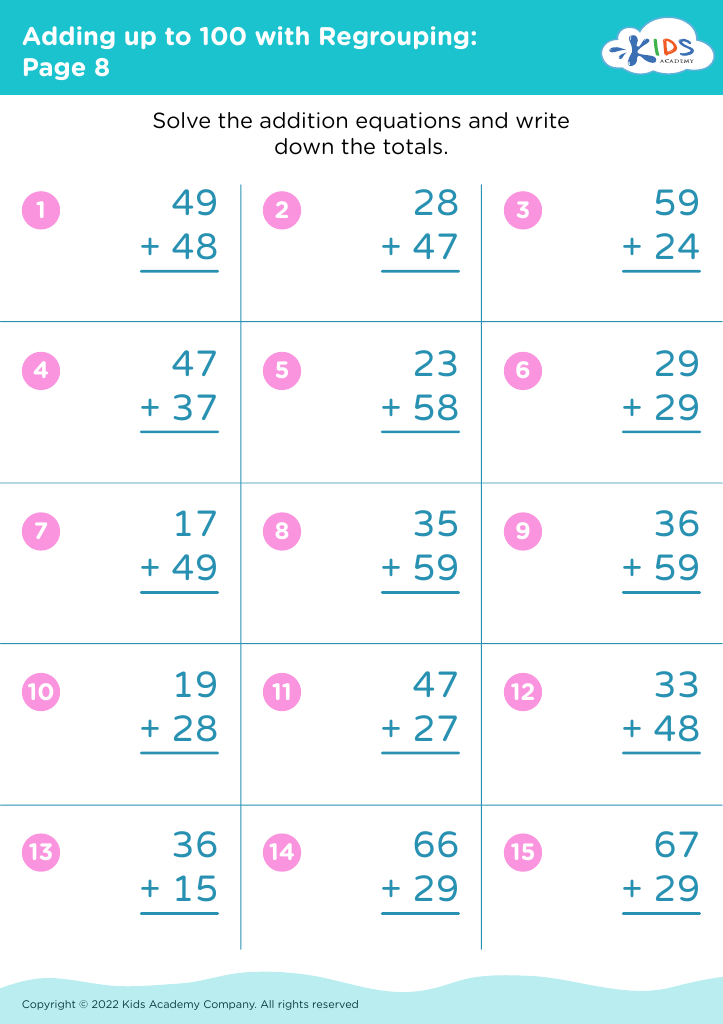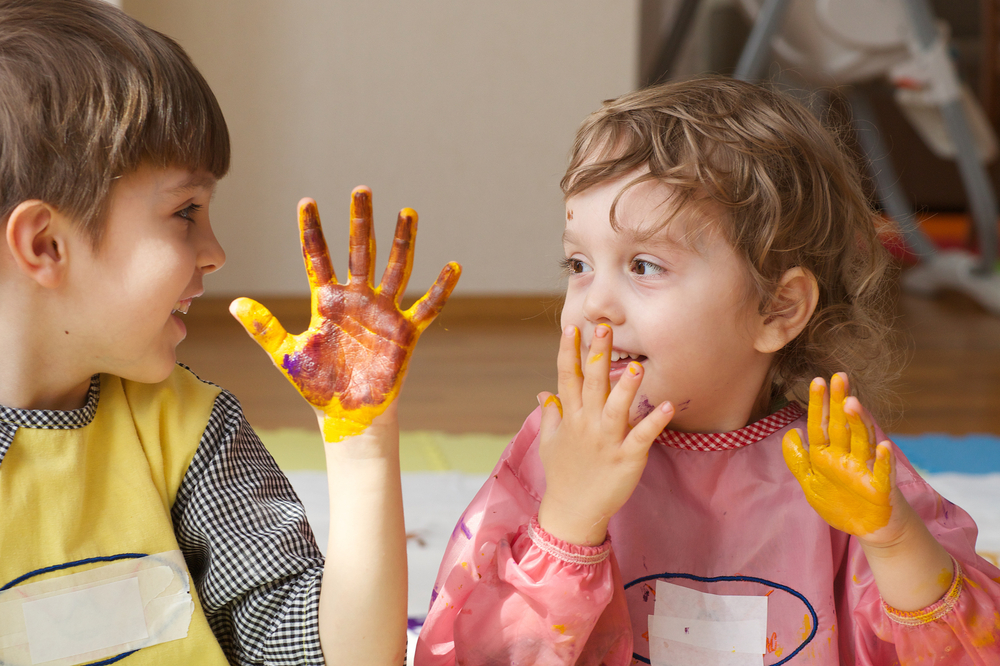Time-telling skills Math Worksheets for Ages 3-7
5 filtered results
-
From - To
Discover our engaging Time-Telling Skills Math Worksheets designed specifically for children aged 3-7. These printable resources provide a fun and interactive way to introduce young learners to the concept of telling time. With a variety of activities such as matching clocks, drawing hands on analog clocks, and recognizing numbers on digital displays, our worksheets cater to different skill levels. Perfect for home or classroom use, they help reinforce essential math concepts while encouraging a love for learning. Empower your child with foundational time-telling skills and watch their confidence soar! Explore our collection and watch them tick with excitement today!
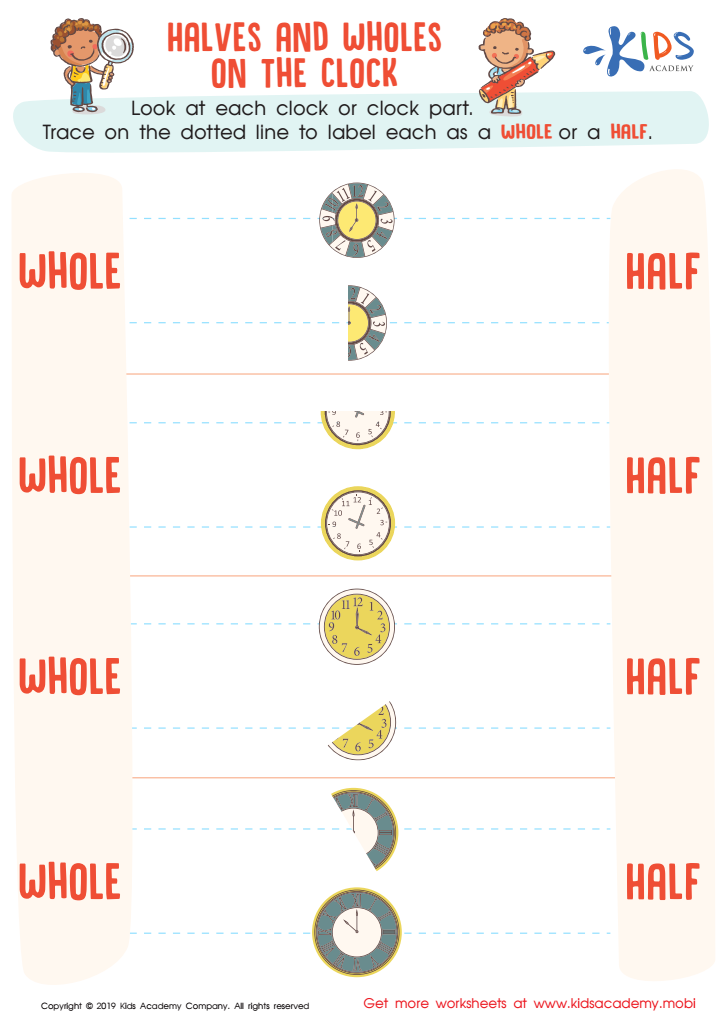

Halves and Wholes on the Clock Worksheet
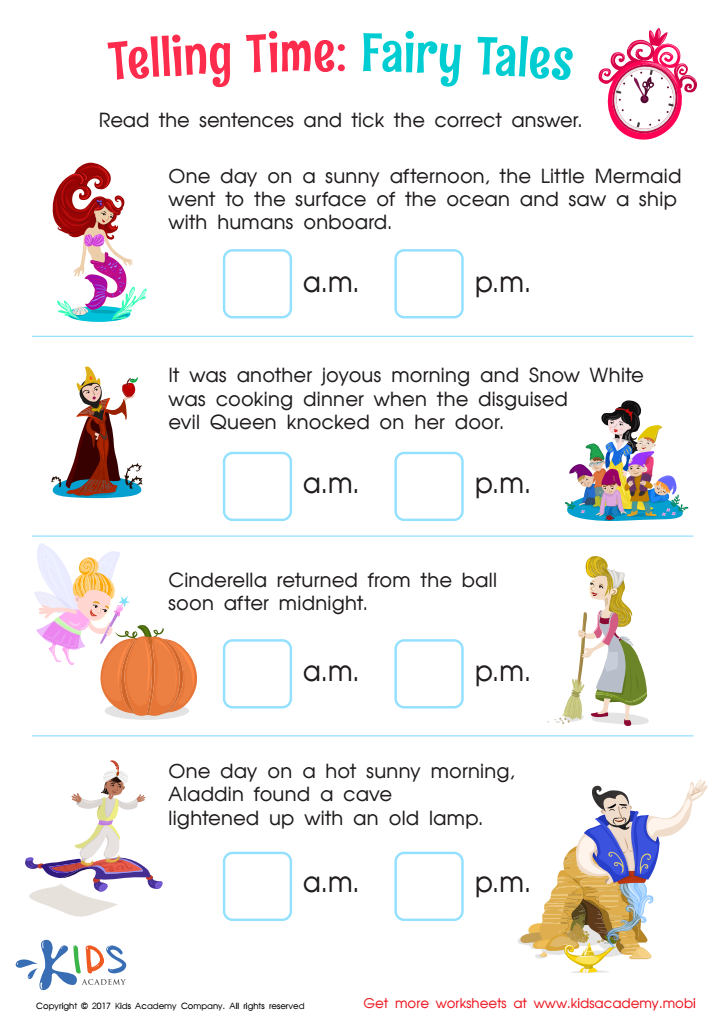

Telling Time: Fairy Tales Worksheet
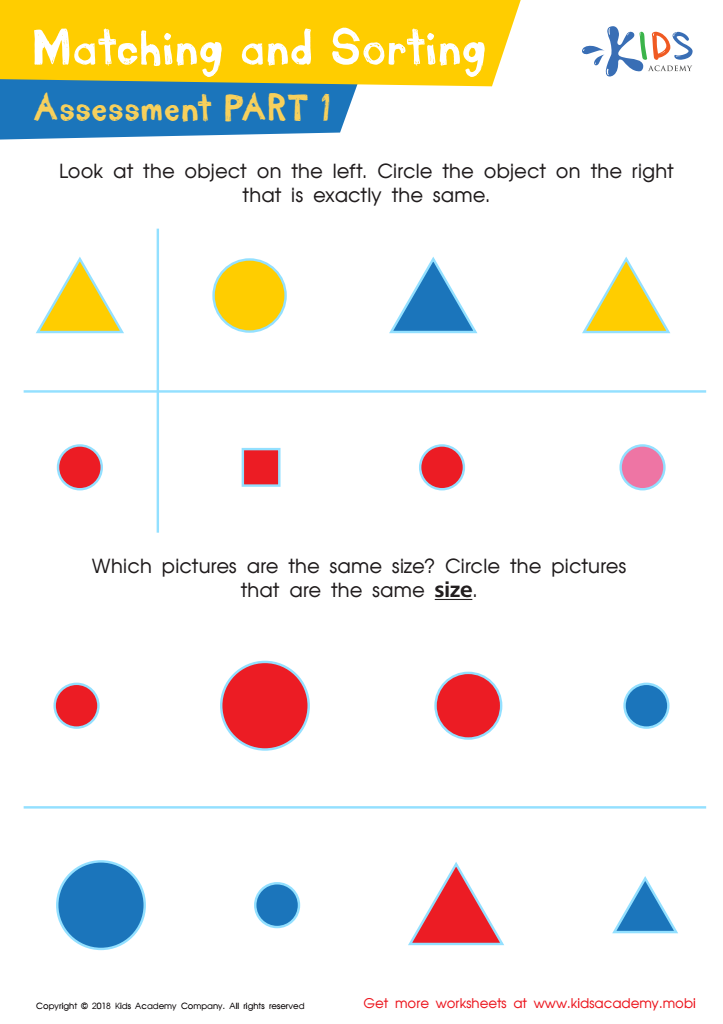

Matching and Sorting for Kindergarten: Assessment 1 Worksheet
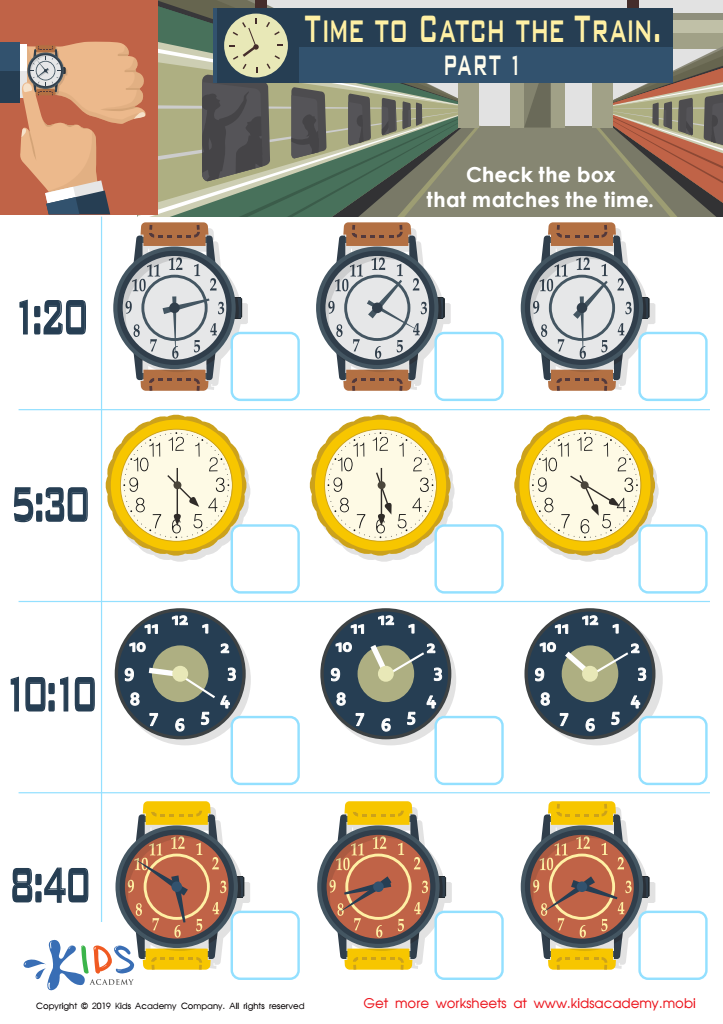

Time to Catch the Train Part 1 Worksheet
Time-telling skills are a vital part of early mathematics education for children aged 3-7, impacting not only their academic development but also their daily lives. Learning to tell time enhances a child’s number sense, understanding of sequences, and recognition of relationships between numbers. This foundation aids in various mathematical concepts, encouraging critical thinking and problem-solving abilities.
Additionally, being able to tell time empowers children with independence and fosters responsibility. They become more aware of their schedules, daily routines, and the passage of time, which can help in managing time effectively, a skill critical for future academic success and daily living.
For parents and teachers, nurturing these skills supports children in developing greater confidence and interpersonal skills as they learn to manage their activities according to time. Integrating time-telling into fun activities, like games or story-telling, makes learning interactive and engaging, fostering a love for learning.
Investing time in teaching these skills also promotes collaboration between parents and educators, creating a consistent, enriching environment for children. Overall, time-telling skills are essential in laying a well-rounded foundation for numeracy and life skills, preparing children for future challenges in and out of the classroom.
 Assign to My Students
Assign to My Students
